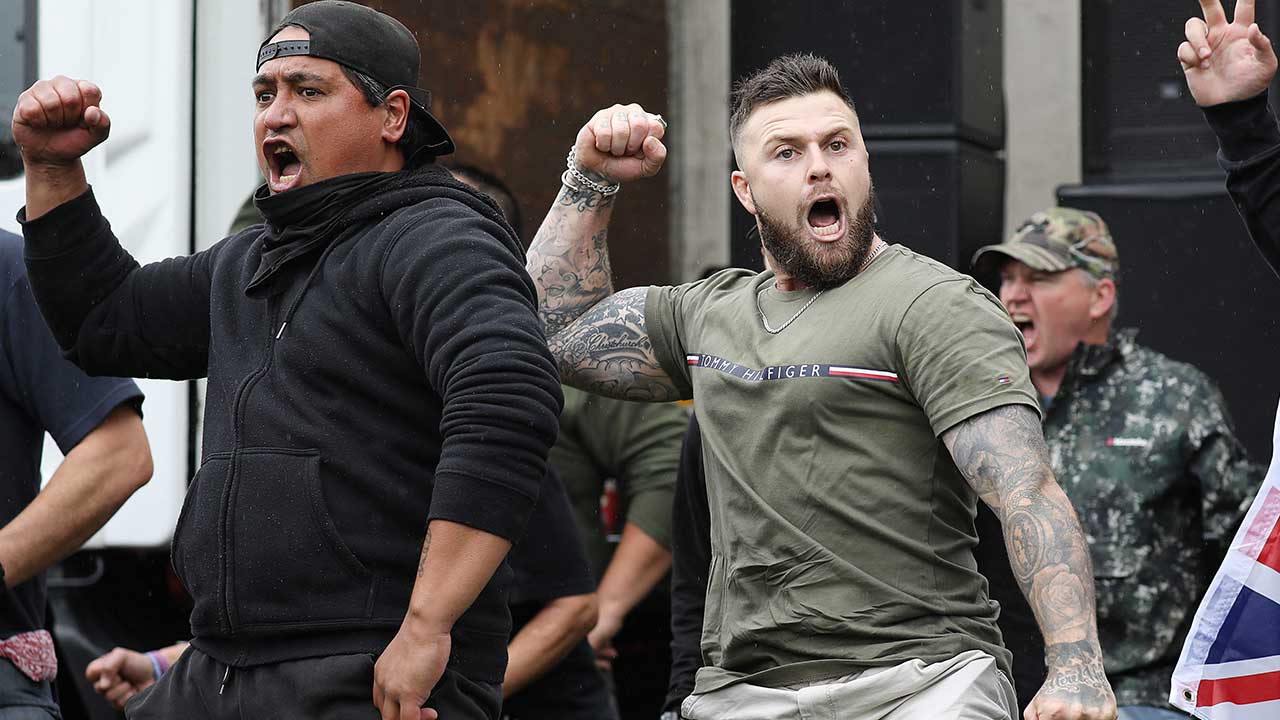Māori tribe tells anti-vax protestors to stop using the Ka Mate haka

Anti-vaccine protestors in New Zealand have adopted the Ka Mate haka and begun performing it at their rallies, and one Māori tribe has now told them in no uncertain terms to stop.
The Ka Mate is a Māori haka composed around 1820 by Te Rauparaha, war leader of the Ngāti Toa tribe, and is the haka performed by the All Blacks at international rugby test matches. In response to it being co-opted by anti-vax protestors, the Ngāti Toa tribe has released a statement telling them they do not have the tribe’s support or permission to perform the dance.
"We do not support their position and we do not want our tupuna [ancestors] or our iwi [tribe] associated with their messages. Our message to protesters who wish to use Ka Mate is to use a different haka. We do not endorse the use of Ka Mate for this purpose."
New Zealand has one of the lowest COVID-19 rates in the world, but has struggled to fight off the highly infectious Delta variant this year, forcing Prime Minister Jacinda Ardern to move from her previous strategy of elimination through lockdowns to living with the virus with higher vaccination rates. She has set a goal of vaccinating 90 per cent of those eligible before ending lockdowns entirely, and so far, about 81 per cent of the eligible population has received two doses of the vaccine.
Anti-vaxxers and the far-right have responded negatively to newly introduced vaccine mandates, and took to the streets in several cities around New Zealand last week in protest. Protestors were seen marching through Christchurch and Wellington bearing pro-Trump flags, New Zealand flags, English flags, and signs featuring Nazi swastikas. Some protestors bore signs making reference to QAnon, while some scrawled threats onto tennis balls and lobbed them at members of the press.
Following the introduction of vaccine mandates, Monday was the deadline for all education, disability, and health sector workers in New Zealand to have received at least one dose of a COVID-19 vaccine.
Image: Sanka Vidanagama/AFP via Getty Images
